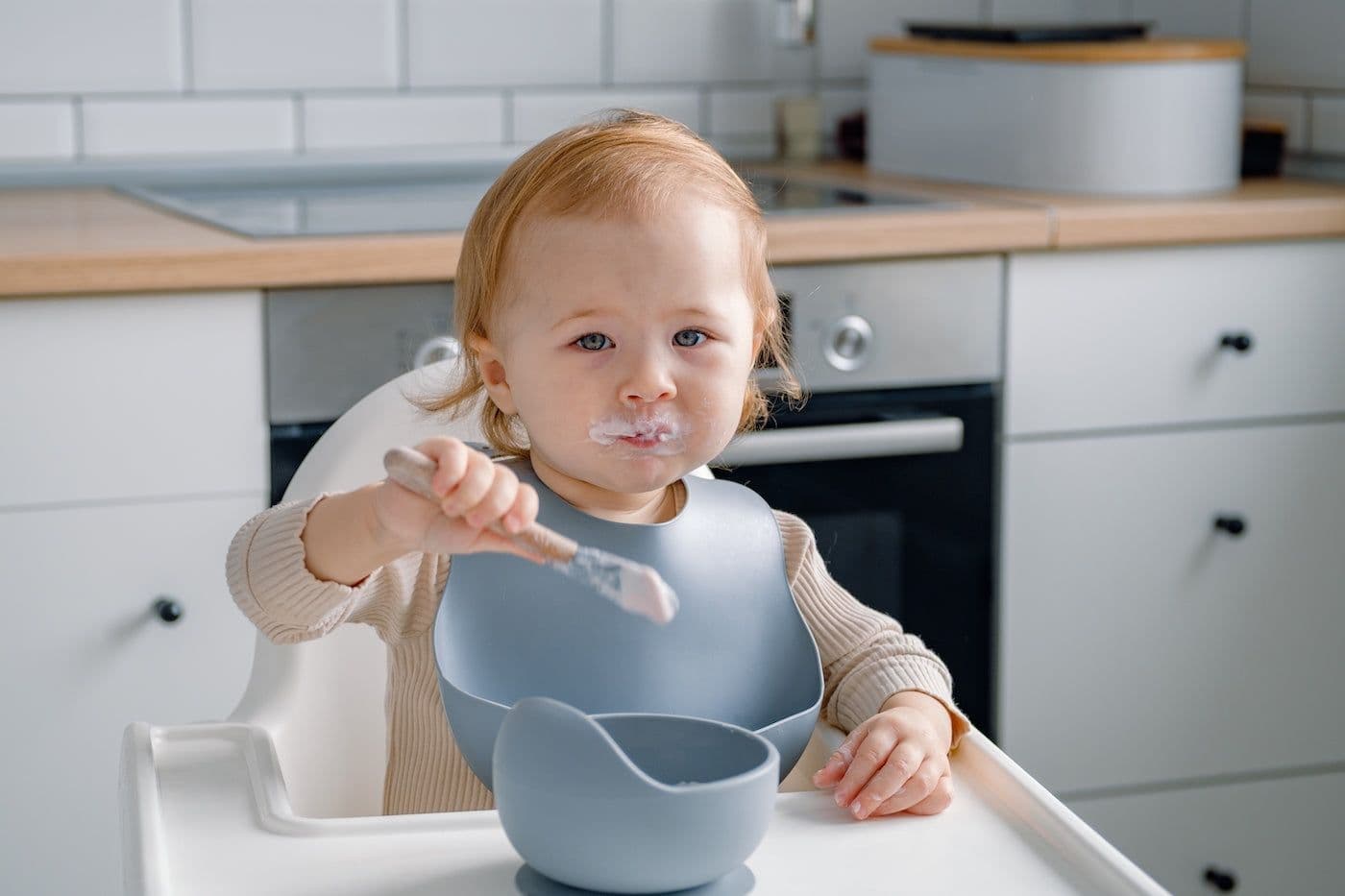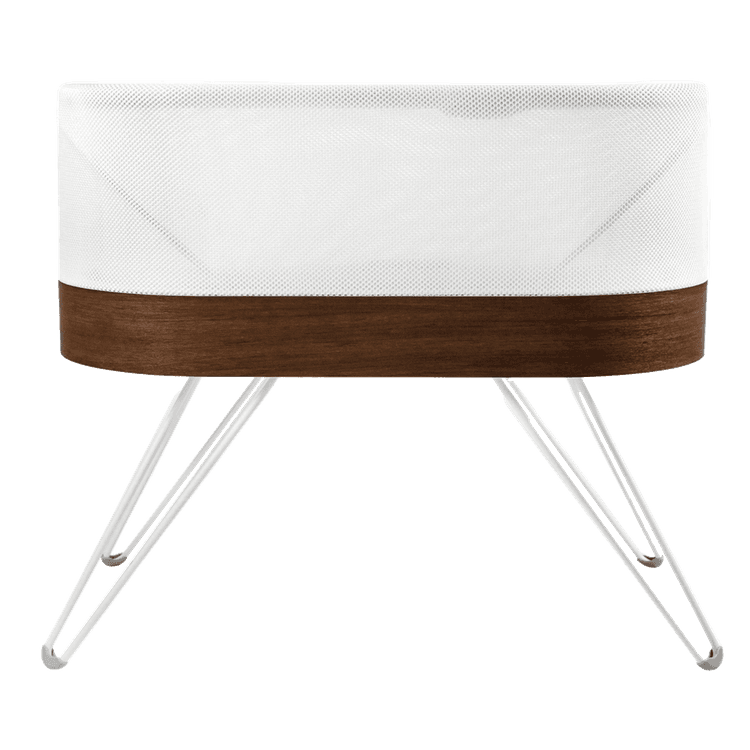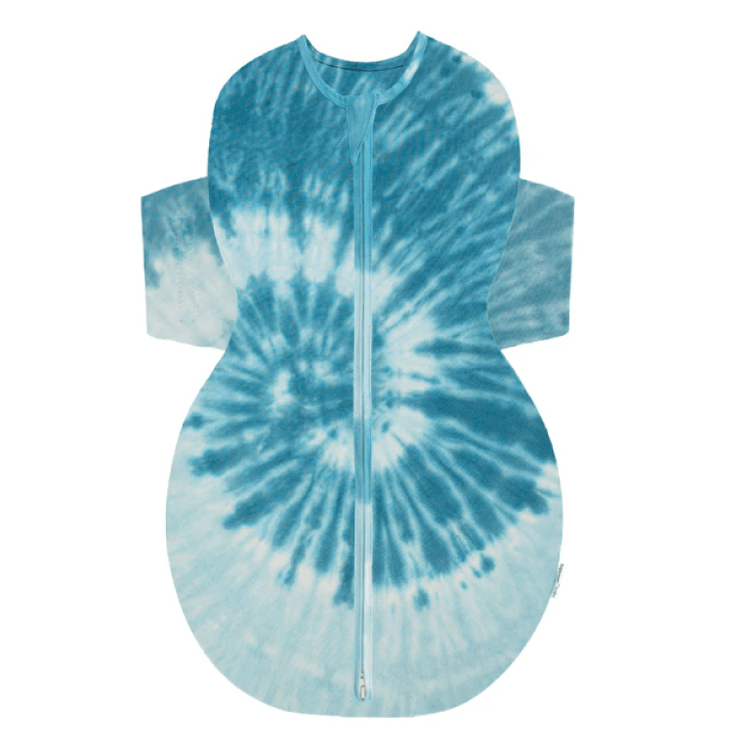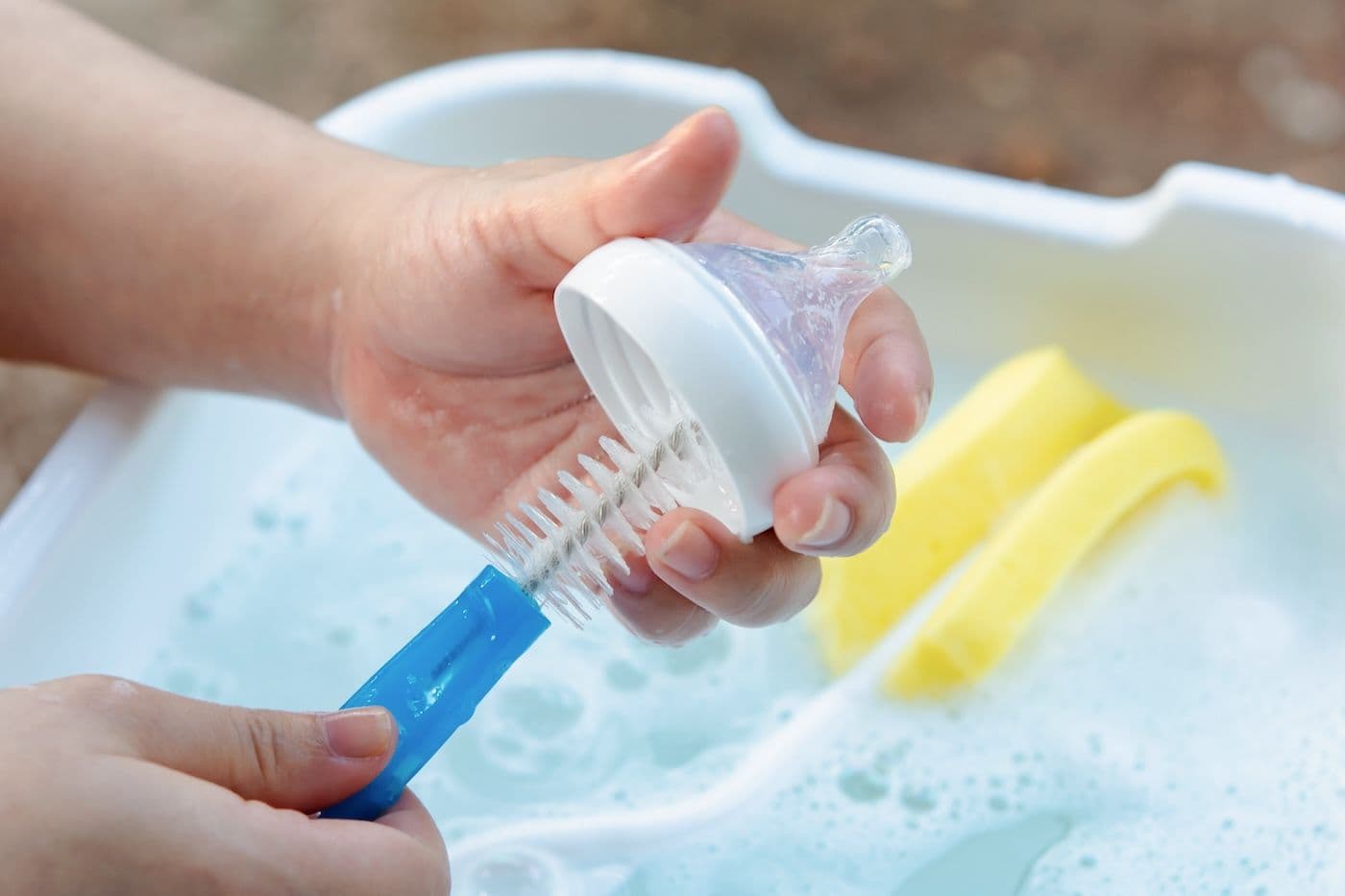BABY
12 Calcium-Rich Foods for Babies and Toddlers
Keep those tiny skeletons in tip-top-shape!

Written by
Gabrielle McPherson, MS, RDN, LDN

Believe it or not, preventing brittle bones in old age begins right now! Your little one’s body is already working hard to build, form, and strengthen bones they’ll need for the rest of their lives. In fact, kids develop 90% of their bone mass by their 18th birthdays, making childhood a crucial time to load up on bone-bolstering nutrients like calcium.
Calcium is the most abundant mineral in the body and offers a framework for your tot’s growth. A whopping 98% of the body’s calcium is banked inside the bones—and not just for kiddos, but for parents too!
But as essential as calcium is, the American Academy of Pediatrics (AAP) says supplementing isn’t necessary for healthy kids. Instead, experts recommend making sure that tots get enough calcium through the foods they eat. So, what are the best calcium-rich foods for babies and toddlers? Read on to discover 12 tasty bone-building foods to help little ones get enough calcium and keep their tiny skeletons in tip-top shape.
(Just keep in mind that the serving sizes described below may not reflect the servings your baby or toddler eats—they’re just for reference. Here’s help with baby portion sizes.)
How much calcium do children need?
Wondering how much calcium your little one’s diet could use? Here are the daily calcium needs for babies and toddlers:
- Babies 0 to 6 months: 200 milligrams
- Babies 7 to 12 months: 260 milligrams
- Toddlers 1 to 3 years: 700 milligrams
Milk
Let’s start with the obvious: Cow’s milk offers a ton of calcium per serving! Unless your child has a dairy allergy, cow’s milk is an udder-ly vital nutrition source for tots ages 1 and up (babies under 12 months should not have cow’s milk). Whole cow’s milk boasts high calories and fat, priming your little one’s brains and bodies for their rapidly developing bodies and brains. Just one cup of cow’s milk contains 276 milligrams of calcium, 39% of what toddlers need daily.
Yogurt
A fantastic food for babies from 6 months and up, yogurt is full of protein, B vitamins, phosphorus, and live cultures (aka probiotics). All too often, babies and toddlers have difficulty going #2, so probiotics may help keep your tot’s digestive system happy. Plus, if your babe struggles with skin issues, like eczema, probiotics may be able to help with relief. Serving up 140 milligrams of calcium per half cup, plain full-fat yogurt offers babies 54% to 70% of their daily needs and about 20% of a toddler’s. To naturally sweeten and add more calcium, blend yogurt with dates.
Mozzarella Cheese
Cheese, please! In addition to being rich in protein and supplying calories essential to your baby’s growth, mozz is also brimming with calcium. A half cup of shredded mozzarella gives your baby 73% to 95% of their calcium goal and 27% for toddlers. Finely shredded mozzarella works well for young babies to pick up with their whole hand and munch. Older babies and toddlers may enjoy fresh mozzarella cheese that’s been cut into thin sticks they can easily hold. Buying pasteurized cheeses lessens the risk of foodborne illness and keeps your little one as safe as possible.
Bok Choy
Moving onto some plant-based calcium eats, bok choy is a Chinese cabbage with flat, smooth green leaves. It has a ton of potassium, folate, and antioxidants, like beta-carotene, which loads kiddos up with eye-healthy vitamin A. A half cup of shredded, cooked bok choy has 79 milligrams of calcium—30% to 40% of a baby’s daily needs, and 11% of a toddler’s. Shredded, cooked bok choy is ideal for toddlers, but babies fare better with bok choy puree. Consider pureeing bok choy with salmon or on its own with a squeeze of lemon, and let your baby enjoy its natural buttery taste.
Tofu
Bursting with nutrients, tofu is teeming with calcium, especially if it’s fortified. A half cup of fortified tofu has 138 milligrams of the bone-friendly stuff, bringing your baby 53% to 69% of their recommended daily intake (or 20% for toddlers). Protein, zinc, iron, copper, and selenium are also present in ample amounts. Plus, tofu’s naturally soft texture makes it a safe and simple choice. Tofu fruit blends work nicely for babies, while soft pan-fried tofu cubes and sticks are appropriate for toddlers.
Sardines
Good for your little one’s heart, brain, and vision, sardines are like the unsung nutritional heroes of the sea. They pack protein, omega-3 fats, and calcium. An ounce (or about two tablespoons) of sardines carries 108 milligrams of calcium—42% to 54% and 15% of what infants and toddlers need, respectively. Boost your baby’s brain development and add strength to their bones and teeth with this tiny oily fish food. Fork-mash the sardines for easy eating!
Fortified Plant Milk
Pea milk and soy milk are some of the best plant-based milk options for toddlers with allergies to dairy milk. Plant milks made from soy and pea protein do an excellent job supplying calcium and vitamin D. One cup of pea milk has 451 milligrams of calcium, giving your toddler 64% of their calcium for the day, and one cup of soy milk provides 237 milligrams (or 34% of a tot’s daily needs). Soy milk offers some magnesium and phosphorous (like cow’s milk does) to support those ever-growing bones further.
Just keep in mind that plant-based milks aren’t nutritionally adequate for babies, but iron-fortified formula and breastmilk are. If you have a toddler with a dairy allergy, please consult your medical provider or registered dietitian to choose the best plant-based milk for your tot.
Fortified Orange Juice
According to the AAP, babies don’t need juice, so sipping OJ is best left for toddlers starting from age 1. When your little one is ready for juice, be sure to get the kind that’s fortified with calcium. For toddlers, limit juice intake to about a half cup per day and focus on whole fruits as their primary fruit source. A half cup of fortified orange juice offers 175 milligrams of calcium, meeting a quarter of your toddlers' daily calcium needs. Many brands fortify their OJ with calcium and vitamin D, which work together to ensure your tot can absorb all the calcium they can.
White Beans
Beans are a must-have food for any child’s diet because they’re overflowing with nutrients everyone needs! Babies and toddlers get fiber, protein, potassium, magnesium, and amino acids, which help their muscles, nerves, hair, and skin. Cannellini and great northern beans are white beans that offer around 78 milligrams of calicium per half cup. That’s enough to cover 30% to 39% of your baby’s calcium intake for a day and 11% of your toddler's calcium needs.
Amaranth
Amaranth is an ancient grain that resembles quinoa—in looks and nutritional value. It’s loaded with complex carbs, phosphorus, and potassium, plus it offers 58 milligrams of calcium in a half cup. Your baby gets 22% to 29% of their daily calcium from this serving of amaranth, while your toddler gets 8%. Prep amaranth to serve as a breakfast porridge and blend with chopped blueberries or peaches for toddlers or puree for your baby.
Almonds
Known for contributing heart-healthy fats and protein, almonds are a bone-booster, to boot. Because nuts put babies and toddlers at risk for choking, you might consider offering them ground or in a nut butter spread. A quarter cup of ground almonds contains 64 milligrams of calcium, while one tablespoon of almond butter contains 55 milligrams of calcium. Ground almonds mix well into soft foods, like yogurt and purees, while almond butter is best to offer thinly spread onto a cracker or toast.
Spinach
Babies and toddlers alike can reap the bone benefits of cooked spinach since a half cup offers a whopping 123 milligrams of calcium. That amount of spinach gives 47% to 62% to babies and 18% to toddlers. Not to mention, Popeye’s go-to green is wealthy in other bone-building essentials like magnesium and phosphorus, plus it’s jam-packed with potassium and folate. What’s not to love?
More Healthy Foods for Babies and Toddlers:
***
REFERENCES
- Urge Families to Boost Consumption of Calcium, Vitamin-D Rich Foods, AAP News, Oct 2014
- Optimizing Bone Health in Children and Adolescents, Pediatrics, Oct 2014
- National Research Council (US) Committee on Diet and Health, Diet and Health: Implications for Reducing Chronic Health Disease Risk, 1989
- National Institutes of Health Office of Dietary Supplements: Calcium
- U.S. Department of Agriculture FoodData Central: Milk
- Probiotics for treating eczema, Cochrane Database of Systematic Reviews, Nov 2018
- U.S. Department of Agriculture FoodData Central: Yogurt
- U.S. Department of Agriculture FoodData Central: Shredded Low-Moisture Part-Skim Mozzarella Cheese
- U.S. Department of Agriculture FoodData Central: Cabbage, Chinese (Pak-Choi)
- U.S. Department of Agriculture FoodData Central: Sardine
- U.S. Department of Agriculture FoodData Central: Unsweetened Nutritious Pea Milk
- U.S. Department of Agriculture FoodData Central: Soy Milk
- Fruit Juice in Infants, Children, and Adolescents: Current Recommendations, Pediatrics, Jun 2017
- U.S. Department of Agriculture FoodData Central: Calcium & Vitamin D No Pulp Pure Squeezed Orange Juice
- U.S. Department of Agriculture FoodData Central: Amaranth Grain
- U.S. Department of Agriculture FoodData Central: Nuts, Almonds
- U.S. Department of Agriculture FoodData Central: Nuts, Almond Butter
Disclaimer: The information on our site is NOT medical advice for any specific person or condition. It is only meant as general information. If you have any medical questions and concerns about your child or yourself, please contact your health provider.
SHARE THIS ARTICLE
MOST LOVED
Sleepytime Sidekicks
More on Baby
About Gabrielle McPherson, MS, RDN, LDN
Gabrielle McPherson, MS, RDN, LDN is registered dietitian in Missouri who specializes in community and pediatric nutrition. Gaby is passionate about encouraging families to eat well in simple, practical ways that are realistic...and delicious! When not working, Gaby loves cooking, baking, and making messes and memories with her sous-chef/preschooler Charlotte.












